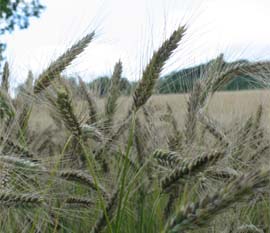Rule change needed for fairer CAP, says TFA

Changes to the Common Agricultural Policy should ensure only active farmers receive financial support, the Tenant Farmers Association has said.
Current rules should be changed to address concerns over how the CAP budget is spent and to remove confusion over who should qualify to receive single farm payments, said George Dunn, TFA chief executive.
Speaking ahead of the Great Yorkshire show (12-14 July), Mr Dunn said he backed recommendations by the European Court of Auditors to amend CAP rules so that people who have “insignificant” agricultural activities do not receive subsidies.
“The current EU rules define an eligible CAP recipient as someone who is either involved in traditional agricultural production or keeping land in good agricultural and environmental condition.
“This definition has allowed a vast array of weird and wonderful landowners to access funding through the CAP.
“The TFA therefore believes the first major change must be to make it clear that eligible recipients must meet both the test of being involved in traditional agricultural production and keeping land in good agricultural environmental condition,” said Mr Dunn.
Changes were needed so that only active farmers were eligible for the single farm payment or agri-environment schemes, he added.
“Eligible recipients must only be those who are occupying the land they are using to make their claim, whether for SPS or agri-environment, who are taking the entrepreneurial risk for the agricultural activities on that land and remain in day-to-day management control.”
But he stressed that the criteria for meeting the need for financial support needed to be implemented on a self-assessed basis to avoid unnecessary bureaucracy.
“Applicants should be put on notice that they will be subject to inspection on their eligibility should the need arise,” he added.
“It is also important that no attempt is made to correct matters retrospectively. Decisions made in the past should remain in the past. These new rules should be applied from an agreed point forward into the future.”
